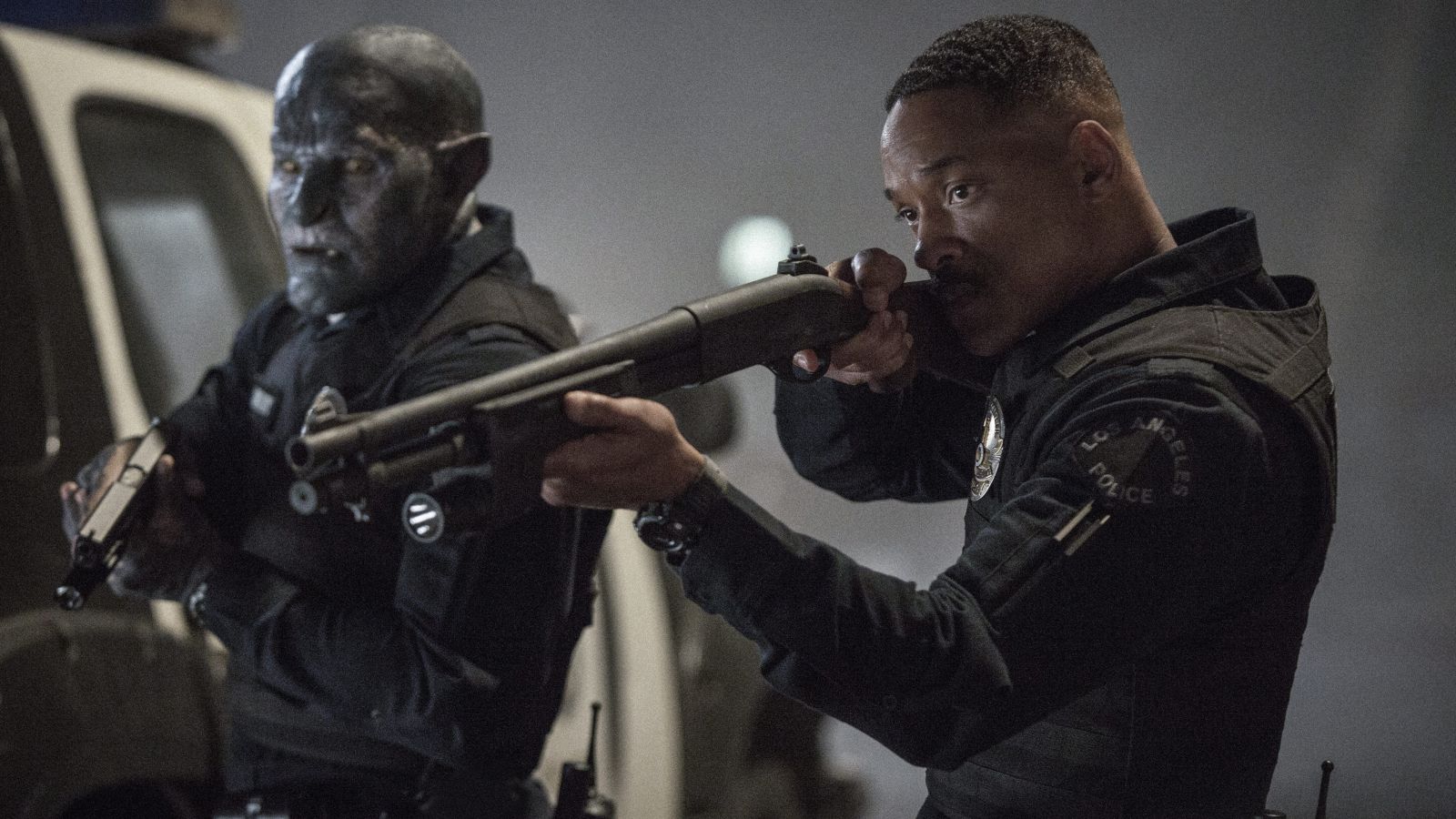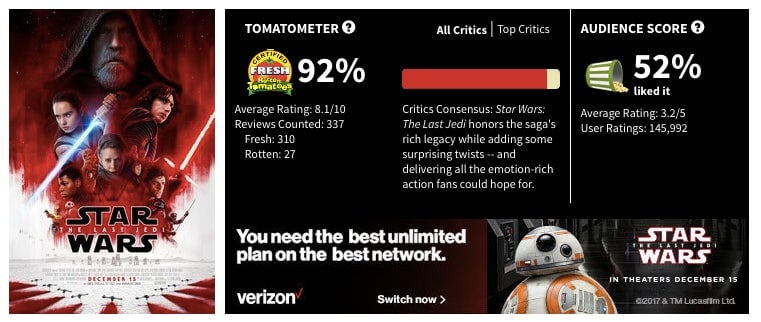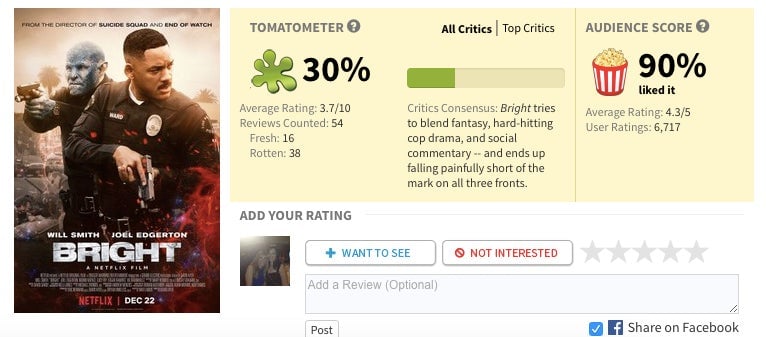When it comes to critics and audiences, “Bright” is the mirror opposite of “The Last Jedi”
December was a big month for movie releases—especially for lovers of sci-fi and fantasy. The Last Jedi, the long-awaited eighth episode in the Star Wars franchise, and Netflix’s $90 million Bright both dropped this month. If you listen to film critics, the former is a near-masterpiece, and the latter is a disaster.


December was a big month for movie releases—especially for lovers of sci-fi and fantasy. The Last Jedi, the long-awaited eighth episode in the Star Wars franchise, and Netflix’s $90 million Bright both dropped this month. If you listen to film critics, the former is a near-masterpiece, and the latter is a disaster.
But sites like Rotten Tomatoes and Metacritic are proving that modern-day audiences and critics couldn’t disagree more.
The Last Jedi was hailed by critics for keeping up the momentum Disney created since releasing The Force Awakens in 2015, and even shedding some of the storylines that no longer serve the Skywalker saga. Audiences were a lot more lackluster.

Rotten Tomato critics overwhelmingly approved of The Last Jedi, with an average rating of 8.1/10, while only 52% of audiences liked it. Though there have been some conspiracy theories about the accuracy of the Tomatometer, Metacritic scores were similarly lopsided. The most underwhelming number might be the one that counts most of all: tickets sold at the box office.
Meanwhile, critics couldn’t have been less in tune with audiences when it came to Netflix’s first foray into feature films. Bright, the buddy cop thriller so conceptually bizarre it could have been written by an algorithm, was universally slammed by critics and beloved by audiences.

The Will Smith flick got an overwhelming thumbs-down from critics who called it bloated, an absolute mess and even the worst movie of 2017. But nearly as soon as the film became available for streaming on Friday (Dec. 22), the praise started rolling in on Twitter.
Considering a Bright sequel is already in the works, director David Ayer probably has the best attitude towards the critics of all.